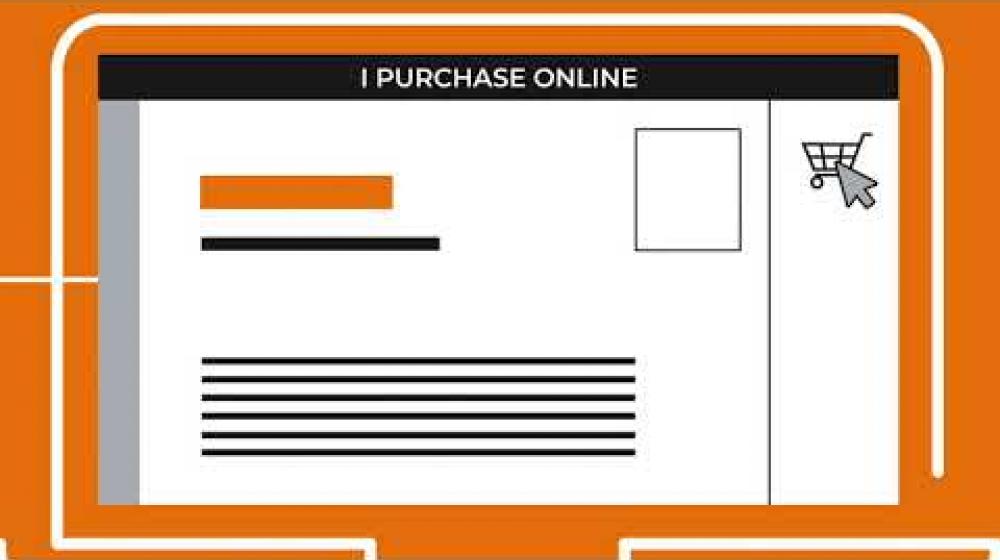Formalities and practical procedures
Formalities and practical procedures
Find customs formalities and practical procedures to ensure that your shipments arrive in French Overseas Territories and other international destinations.

Customs formalities concern goods sent to French Overseas Territories and to international destinations, as well as certain specific territories and islands* that belong to European Union countries. Find out about the customs formalities and practical procedures necessary to ensure the smooth delivery of your parcels.
* The territories and islands concerned by customs formalities within the European Union are as follows: for Germany, Helgoland and the territory of Büsingen; for Denmark, the Faroe Islands and Greenland; for Spain, Ceuta, Melilla and the Canary Islands; for Finland, the Åland Islands; for Greece, Mount Athos; for Italy, Livigno, Campione d'Italia, the Vatican and San Marino.
To better understand the application of customs procedures in French Overseas Territories.
Best practices
Customs documents (CN23, invoices) must be issued in 4 copies: 3 on the parcel that are immediately visible and 1 to be kept as proof
Put the market value excluding taxes (excluding VAT)
Include a pro forma or business invoice depending on the type of shipment
Mistakes to avoid
The market value must not be €0
Avoid overly generic descriptions such as samples, gifts
If the market value is higher than €1,000, do not forget to indicate the EORI number on the CN23 so that La Poste can compile the SAD
Useful links
- To find the trade description of your goods (HS code) required for your customs declaration, you can use the following link.
- For goods valued at more than €1,000, a SAD (single administrative document) must also be attached to the shipment. To prepare this document, you must provide the EORI (Economic Operator Registration and Identification) number on the invoice. To obtain this number: click here
- The status of approved exporter is a system that simplified customs procedures concerning proof of origin. Approved exporters can certify the origin of their products themselves. For more information on this approved exporter status, visit: the customs website.
- For a list of agreements and documents associated with the main destination countries, click: the following link
The CN23 provides justification for the nature, value and origin of shipments. It is required for the international shipment of goods to French Overseas Territories and certain specific territories in Europe.
How to fill it out ?
- Provide a detailed description of the exported goods with reference to the customs tariff item for commercial shipments
- Indicate the total unit value of the goods
- Define the origin of the goods
Define the nature of the parcel
Downloard the operating document to fill in your CN23 View an example of CN23
Helpful tips
What does "gift" actually mean?
The notion of a gift can be assessed very differently by the customs authorities of the country of destination, which may set thresholds for duty exemption depending on the nature of the goods. Some countries have adopted specific customs provisions. Refer to the "Special customs provisions" of each country fact sheet on the laposte.fr website
What does "sample" actually mean?
It is an item that Customs considers to be of negligible value and is only used to generate orders. It may not be sold, marketed, rented or used for remuneration.
The CN23 must be kept for a minimum of 4 years by the shipper in the event of an inspection by the French customs authorities.
Attaching an invoice to the shipment
For non-commercial shipments (non-commercial samples) you must complete a pro forma invoice in duplicate. State the cost of manufacturing of the merchandise as the value.
For commercial shipments you must complete a commercial invoice in duplicate. State the selling price of the merchandise as the value.
Download the "how to complete an invoice" procedure Download a blanck pro forma invoice
Drawing up an origin declaration
The European Union has good relationships with a large number of third countries (non-EU countries). These relationships are eligible for a reduction or exemption from customs duties on arrival. This requires proof that the goods in question originate in the European Union.
This proof may be in the form of a Declaration of Origin (DOF) on the Invoice for the majority of destinations, or a EUR1/EUR-MED or EUR2 document for other destinations, and an ATR certificate for Turkey. The proof is provided by the exporter at the time of the shipment and must be attached to the shipment, in addition to CN23 form and, in some cases, the invoices.
Download a DOF template Find customs documents
| Destination countries(1) | Parcel value threshold | Documentation to be attached |
|---|---|---|
| A : Albania, Algeria, Andorra, South Africa B : Gaza Strip, Bosnia and Herzegovina C : Canada, Ceuta, Chile, West Bank, Colombia, Costa Rica E : Egypt, El Salvador, Ecuador F : Faroe Islands G : Georgia, Guatemala H : Honduras I : Iceland, Israel J : Jordan K : Kosovo L : Lebanon, Liechtenstein M : Macedonia, Morocco, Melilla, Mexico, Moldova, Montenegro N : Nicaragua, Norway P : Panama, Peru S : Serbia, Switzerland(1) T : Tunisia U : Ukraine V : British Virgin Islands ACP (Africa-Caribbean-Pacific) countries ACP (Africa-Caribbean-Pacific) |
Up to €6,000 Above €6,000 |
DOF EUR1 or EUR-MED in certain exchanges or without value limitation for approved exporters For Canada DOF (less than €6,000), Registered Exporter Status (more than €6,000) |
| OCTs (Overseas Countries and Territories) | Up to €10,000 Above €10,000 |
DOF EUR1 or without value limitation for approved exporters |
| Syria | Up to €850 Above €850 |
EUR 2 EUR 1 |
| Northern Cyprus, Turkey (except agricultural products covered by Annex 1 of the Amsterdam Treaty and ECSC products) |
ATR | |
| Northern Cyprus, Turkey (except agricultural products covered by Annex 1 of the Amsterdam Treaty and ECSC products) |
Up to €6000 Above €6000 |
DOF EUR 1 or EUR-MED |
| South Kora | Up to €6000 Above €6000 |
DOF Only for approved exporters |
(1) : List of agreements and related documents, available at the following link
The single administrative document for goods with a value of more than €1,000.
For shipments whose value is more than €1,000, the SAD (Single Administrative Document) must be attached to the shipment, in addition to the CN23 form and the invoice. La Poste prepares this document on behalf of the sender if necessary.
EORI number
For the preparation of the SAD, you will need to provide the EORI (Economic Operator Registration and Identification) number on the CN23 and on the invoice.
Proof of export
La Poste prepares the SAD on behalf of the customer and will send a copy to the sender.
Helpful tips
The SAD is the parcel's identity card for shipments valued over €1,000. This document must be kept for 4 years (in addition to the CN23 customs declaration). It may be requested in the event of customs inspections.
Recommendations
- Not all goods are exportable to all countries. For more information on prohibited goods, please refer to the country data sheets in the export guide.
- In the event of inaccuracy of customs declarations or non-compliance with customs prohibitions and limitations, contact the competent bodies:
- Chamber of Commerce and Industry (CCI) in your region
- Business France
- Trade missions in France of foreign states
- Professional organisations
- Customs website: http://www.douane.gouv.fr
Do you know what will change in October 2021 for parcels to Overseas ?
Today when you send a package to the Overseas Departments, the customs declaration process requires the printing of various documents which are then processed manually by the customs authorities. This can slow down the delivery of your packages and complicate your experience with our services (long time in the event of a problem with documents, lack of visibility for your recipients, etc.) and your recipient customers.
From October 12, 2021, La Poste will provide you with tools that will allow you to simplify your customs clearance operations, which will now be exclusively electronic and will thus offer you a better customer experience.
Deployment schedule for the new electronic customs clearance system: Guyana: 12/10/2021; Guadeloupe: 01/01/2022; Martinique: 02/01/2022; Mayotte: 04/01/2022; Reunion: 06/01/2022
Useful documents for international deliveries
Export guide, export lexicon, postcode structure, guide to customs formalities...
DDP option (Delivered Duty Paid)
Avoid your consignees having to pay duties (VAT, dock dues, etc.) on delivery.

